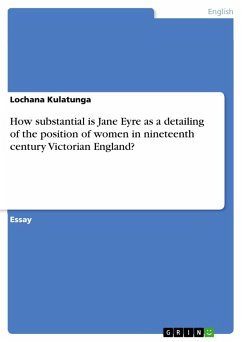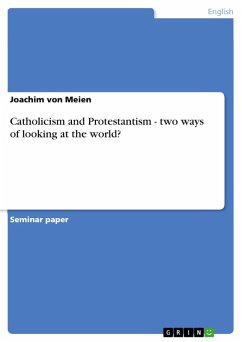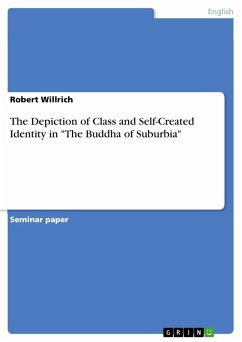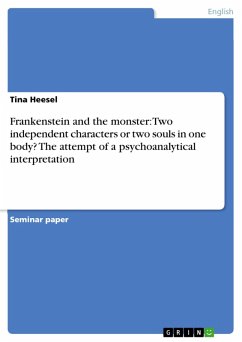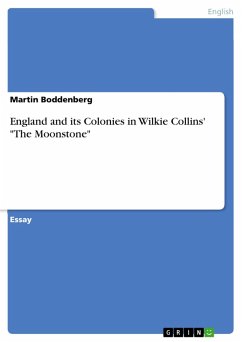
England and its Colonies in Wilkie Collins' "The Moonstone" (eBook, PDF)
Sofort per Download lieferbar
Statt: 16,95 €**
13,99 €
inkl. MwSt. und vom Verlag festgesetzt.
**Preis der gedruckten Ausgabe (Broschiertes Buch)
Alle Infos zum eBook verschenkenWeitere Ausgaben:

PAYBACK Punkte
0 °P sammeln!
Essay from the year 2011 in the subject English Language and Literature Studies - Literature, grade: 2,5, Free University of Berlin, language: English, abstract: Duncan argues that empire can be determined nowhere in Collins' novel The Moonstone, because it is everywhere. There was a strict geographical (England and its colonies) and also social (high, middle and lower class) order in Victorian England. Englishmen and Christianity were regarded superior to the subject races and their religions (e.g. Islam or Buddhism), those were considered barbaric and their believes archaic and of low moral....
Essay from the year 2011 in the subject English Language and Literature Studies - Literature, grade: 2,5, Free University of Berlin, language: English, abstract: Duncan argues that empire can be determined nowhere in Collins' novel The Moonstone, because it is everywhere. There was a strict geographical (England and its colonies) and also social (high, middle and lower class) order in Victorian England. Englishmen and Christianity were regarded superior to the subject races and their religions (e.g. Islam or Buddhism), those were considered barbaric and their believes archaic and of low moral. Most of Collins' con-temporaries believed in the necessity and generosity of imperialism. Nayder even claims that racial hatred towards the subject races was the general, public opinion of the masses in En-gland, especially after the Mutiny in 1857 which motivated Charles Dickens to state: "I wish I were Commander in Chief in India. The first thing I would do to strike that Oriental race with amazement ... should be to proclaim to them, in their language, that I consider my holding that appointment by the leave of God, to mean that I should do my utmost to exterminate the Race upon whom the stain of the late cruelties lasted" (Nayder, pp. 216/217). Collins distan-ces himself from the public opinion of the time and regards the oriental literature which tea-ches Muslim and Buddhist morals as equal to Christian moralistic teaching. This becomes clear when we take a look at his "A Sermon for Sepoys" from 1858, where he almost praises the oriental ideals of devotion to the service of god, unimportance of earthly properties and brotherly love, which will lead to an eternal life in paradise. Collins claims that the Indians should be taught their own literature instead of a foreign Christian morality by, at least in some cases, questionable English gentlemen. In the Victorian era empire was an important part of the national identity and the empire was to be hold together by all means and ways. A global, imperial economy based on dispossessions in the colonies had already been established and certainly many Englishmen left En-gland for the purpose of making money abroad through trade or even through plundering, if there were offered such opportunities to them. The wealth of many English noblemen was collected through means which would have to be considered unchristian or even inhumane these days. In the middle of the 19th century capitalistic ideals were, at least for some people, already more important than Christian morals or a traditional understanding of honour.
Dieser Download kann aus rechtlichen Gründen nur mit Rechnungsadresse in A, B, BG, CY, CZ, D, DK, EW, E, FIN, F, GR, HR, H, IRL, I, LT, L, LR, M, NL, PL, P, R, S, SLO, SK ausgeliefert werden.





